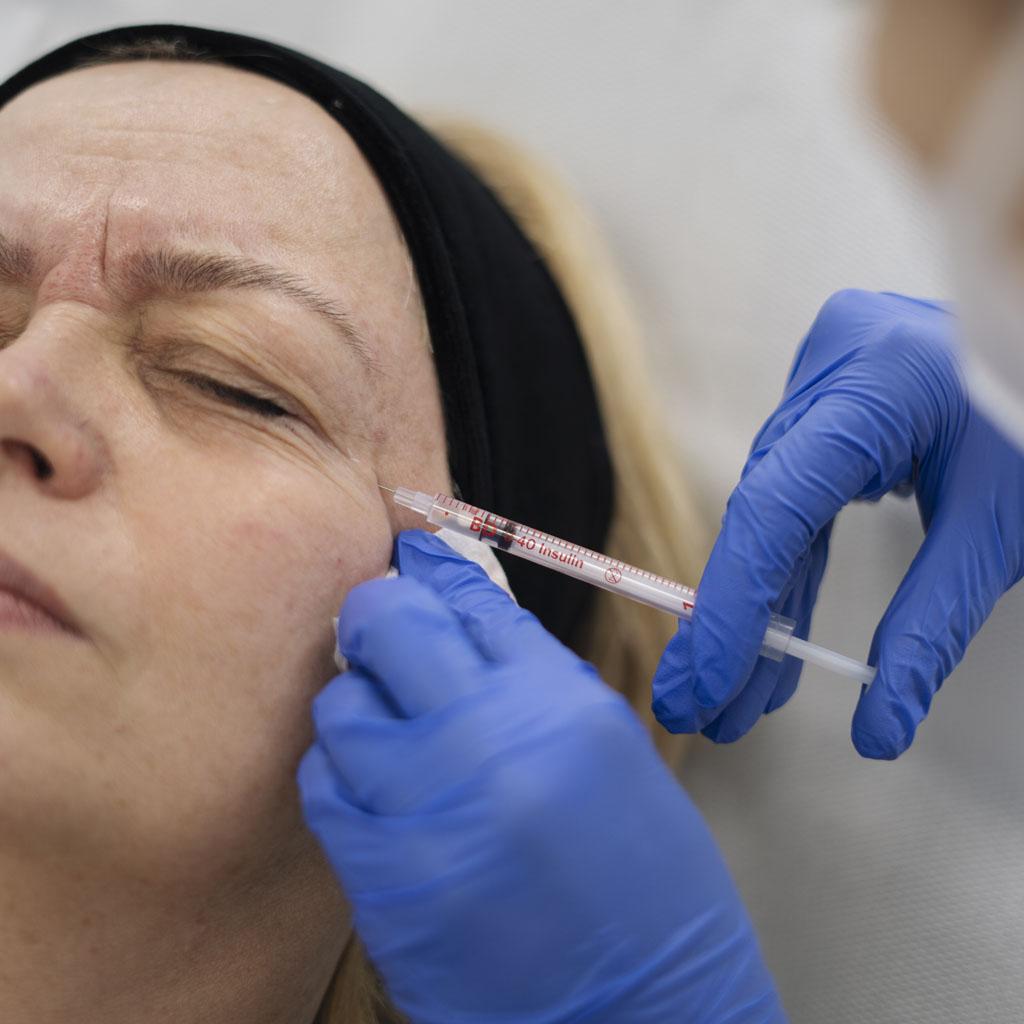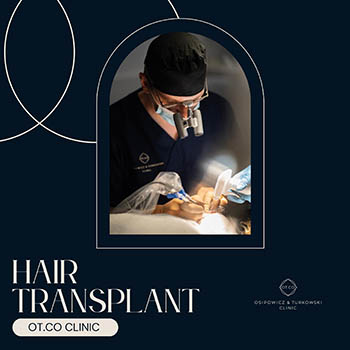TL;DR:
- Polynucleotides are fragments of DNA/RNA naturally found in the body, used in aesthetic medicine for improved skin elasticity, hydration, and anti-aging effects.
- Functions: Stimulate collagen/elastin production, hydrate skin deeply, reduce free radicals, improve fibroblast activity, and repair scars/stretch marks.
- Applications: Treat wrinkles, scars, stretch marks, dry skin, photodamage, and boost hair growth and quality.
- Procedure: Involves injections over 3-4 sessions with minimal pain. Effects are visible after the first series, lasting months.
- Benefits: Superior to fillers, natural-looking, long-term results, minimal side effects, can combine with treatments like hyaluronic acid for enhanced outcomes.
- Contraindications: Pregnancy, active skin infection, cancer, autoimmune disorders, or inflamed acne.
- Results: Improved skin firmness, elasticity, hydration, scar reduction, and youthful appearance.
Many people want to maintain an eternal, youthful appearance, firm skin free of wrinkles. Unfortunately, one should be aware that there is no escape from the progressive aging process – it is a natural phenomenon. However, you can make its consequences less visible. First of all, it is worth remembering that skin aging is affected not only by genetic factors, but also by external factors. Excessive use of tanning beds, an unhealthy lifestyle or lack of proper skin care – all these can contribute to the fact that the first signs of aging appear on the skin much sooner. Fortunately, thanks to aesthetic medicine, this process can be delayed. For example, polynucleotides – fragments of RNA and DNA acids – will help. What treatments are worth doing and what should you know about polynucleotides?
What are polynucleotides?
Polynucleotides are nothing more than fragments of RNA and DNA acids. They are therefore found naturally in the human body. Aesthetic medicine uses polynucleotides in the form of molecules, whose role is to influence the improvement of skin elasticity and provide a healthy appearance. They have the ability to bind water molecules, so the patient's skin will gain an appropriate level of hydration after the procedure. Polynucleotides also influence the exponential growth and improvement of fibroblast activity. These are cells that play an important role during the process of reconstruction of skin components. In addition, they are responsible for combating the production of free radicals in the body and stop photo-aging of the skin. They also help fight scarring by supporting the skin's regeneration process after tanning. According to studies conducted so far, polynucleotides show strong skin reactivating properties. These are much stronger than those of other key skin active ingredients – such as hyaluronic acid. The results of studies that verified the effect of polynucleotides very clearly show that pore size or skin thickness improved in patients at the age of 30. Skin color or wrinkles, on the other hand, improved in patients over 40. In addition, no side effects were noticed in Patients after using polynucleotides. More than 143 Patients participated in the clinical trial, which showed improvements in skin elasticity and hydration.

How do polynucleotides affect the skin?
Polynucleotides are responsible for the process of stimulating skin cell function. They stimulate collagen and elastin to regenerate. Thus, these stimulators act not only in the form of ad hoc filling of tissue defects, but also deeply revitalizing their structure. As a result, the effect of polynucleotides is very natural and lasts much longer than when using popular fillers.
The most important tasks that polynucleotides perform in the human body include:
- biostimulation – polynucleotides contribute to the activation of two types of receptors – CD 39 and CD 40. The latter are responsible for stimulating the maturation of fibroblasts into myofibroblasts. Activation of CD 39 membrane receptors, in turn, stimulates the production of type I collagen, elastin, glycosaminoglycans and proteins. The result? Immediate lifting, regeneration of the skin and pronounced thickening of the skin regardless of its type,
- antioxidation – thanks to polymeric polynucleotide macromolecules, this filler is capable of immediate action related to the reduction of free radicals from the extracellular space. They are captured by aromatic rings in the nitrogenous base space,
- deep hydration – the polynucleotides bind water, thus leading to permanent hydration of the cellular matrix. As a result, they also give the skin elasticity.
When is it worth using polynucleotides?
Polynucleotides and preparations that contain them act as short-term, temporary fillers. This is possible because long DNA fragments have a viscoelastic consistency. They are excellent for treating scars and stretch marks, as they stimulate fibroblasts to remodel the skin. In addition, they can easily be applied to the scalp, accelerating hair growth. Polynucleotides make the regrowing hair have a healthier hair shaft and are stronger. Tissue stimulator with polynucleotides are most often used to revitalize the skin of the face, around the eyes, lower and upper eyelids, as well as the neck or décolleté. The use of polynucleotides under the eyes allows for a brightening effect in this area. The eyelids, in turn, will gain their former elasticity, in wrinkles will become shallower. General indications for the use of polynucleotides include:
- anti-aging therapy,
- anti-aging therapy combined with the use of chemical peels or lasers,
- the need for rapid skin regeneration,
- lack of hydration in the skin tissues,
- the presence of numerous scars and stretch marks,
- photodamage to the skin.
What are the contraindications to the use of polynucleotides?
Despite the fact that polynucleotides used in preparations to stimulate the skin to regenerate, have a proven effect and a low risk of the appearance of side effects, just like any other treatment, not everyone can be qualified for treatment. The most important contraindications disqualifying polynucleotide therapy include:
- pregnancy or lactation period,
- bacterial and viral inflammation of the skin,
- acne with inflamed conditions,
- cancer,
- autoimmune conditions.
How does the treatment with polynucleotides proceed?
Before each treatment, the patient is referred for a consultation with a doctor, who will analyze the person's problem and evaluate the treatment options. He will plan its course and verify any contraindications of the therapy. The therapy involves the application of a polynucleotide preparation into the skin with a very thin needle. The doctor performs several punctures on different regions of the body – depending on the needs of the patient. The therapy is carried out under anesthesia with a cream – so there is no pain. One treatment series lasts a quarter of an hour. Treatments are performed in the amount of 3 – 4 every month. A break between each session is necessary to allow the skin to regenerate and remodel. After completing a series of treatments, a so-called "booster session" can be performed. However, it is recommended to wait with it for about six months after finishing the therapy. The effects are already noticeable after the first series of treatment, but it is worth remembering that this is an individual issue for each patient. This is influenced by the type of skin, its condition or the age of the Patient.
What effects can be obtained after the administration of polynucleotides?
Among the most important effects of this procedure, there is a strong skin lifting effect. It is particularly important in areas where the skin surface has lost hydration. Polynucleotides also affect the effect of binding water molecules in the intercellular space. As a result, the firmness, elasticity and density of the tissue are significantly improved. Such a treatment is therefore recommended for patients who struggle with hypoxia and dehydration of the skin. In addition, the skin will regenerate much faster and gain a healthier, youthful appearance. With the help of polynucleotides, the appearance of scars or stretch marks can also be reduced. Besides, when used in hair loss treatment, the patient may notice that the regrowing hair stalks are stronger and healthier.
What are the advantages of using polynucleotides?
Reputable Aesthetic Medicine Clinics use only high-quality tissue stimulators. Their main advantages include:
- excellent tolerance by the body,
- no risk of complications – the preparations bear the necessary CE certificates and approvals,
- sterility of the product,
- high concentration of polynucleotides.
In addition, this treatment can be combined with other procedures – such as the use of hyaluronic acid. This allows to obtain even better results. This is due to the fact that polynucleotides have the ability to bind large amounts of water. Hyaluronic acid, on the other hand, which is administered via mesotherapy, is metabolized by the body very quickly. That's why when polynucleotides are administered followed by mesotherapy, hyaluronic acid works much better than when applied solo.
Conclusion
Polynucleotides are game-changers in skin rejuvenation and anti-aging treatments. They naturally boost hydration, elasticity, and cell regeneration, offering long-lasting, visible results. By tackling scars, photodamage, or even hair loss, these treatments cater to multiple needs with minimal risk. If you’re serious about long-term skin health and vitality, understanding and exploring polynucleotide treatments is a step worth taking. Remember, aging is natural, but how you manage it is up to you.






